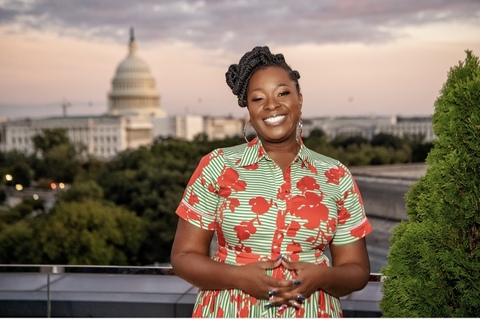- blog
- CCO Profile
This past July, residents of Jackson, MS, a city of 150,000 mostly Black citizens, awoke to find sludgy brown water coming from the taps in their homes. Now more than two months later, residents are still under a boil water advisory from the state.
The NAACP was immediately on the ground delivering bottled water and other resources while engaging in fact-finding and supporting those impacted by this avoidable crisis. But as an organization that has been fighting for social justice for over a century, its real purpose is addressing the root cause: years of neglected infrastructure that is symptomatic of persistent, systemic discrimination and racism. As a result of the NAACP’s continued calls for accountability, the federal government has opened an investigation into Mississippi’s failed leadership.
An iconic brand with a grassroots core, the NAACP is a national organization with 2,200 branches. At the national level, it gives strength and voice to the continued fight for racial equality and promotes Black culture and identity. At the branch level, its network of volunteers are engaged in the mobilization of their local communities. They make real change happen by bringing awareness to emerging issues, meeting with elected officials, speaking up at school board and city council meetings, building relationships and organizing advocacy campaigns.
At the center of NAACP’s identity is Aba Blankson, its Chief Marketing and Communications Officer. She holds a deep appreciation for the historical significance of her organization while ensuring that the NAACP evolves to meet the moment. Aba makes this possible through her work to elevate its brand, build stronger partnerships, foster the growth of its youth leadership, and establish a singular message and voice that unifies its localized communications.
When asked, she describes the brand with four words. Legacy. Iconic. Influence. Culture. The NAACP’s legacy is as the advocacy leader that secured transformational victories for Black people and countless others who have suffered the impact of deeply entrenched systemic inequities. The word iconic highlights its role as a foundational institution that is as much a part of the fabric of America as companies like Ford or Nike. The influence the brand wields across the political, corporate and entertainment landscapes is unmatched. And in all spaces, the NAACP represents the diversity of Blackness - multigenerational, rural, suburban, urban, conservative and progressive - authenticity she described as “unapologetic, outspoken, and confident.” (These characteristics reminded me of the late Ofield Dukes, who was posthumously inducted into the Page Hall of Fame in 2021.) She wants that identity to be ever-present in NAACP’s voice and for it to be reflected at every level of its activities.
Aba leads a team of ten communicators supplemented by two to three agencies that support numerous projects. A big focus is using volunteer branch leaders as an extension of that team, arming them with the tools to capture and tell the stories of their movement using video, social, media relations, etc. “It’s up to my team at the national level to create the structure that allows our local leaders to stand up and speak when necessary,” she says.
The murder of George Floyd was a flashpoint, after which there was a deluge of attention to systemic inequality. NAACP was at the forefront, engaging with companies that wanted to support the cause. “A lot of companies were trying to figure out what to do, what to say. We have a playbook. We aren’t reacting, we’re acting on the things we know how to do. We’re built for this.”
NAACP has long been a valued partner to businesses. Companies would sponsor one-off events and enjoy the short-term connection to “power in Black communities represented by the NAACP,” as Aba put it. But her aim now is to deepen those relationships, serving as a true partner and trusted advisor for advancing DEI in organizations and sustaining long-term efforts to create an environment in which Black people and Black communities can thrive.
Though the Floyd murder cast a spotlight on social justice, Aba is quick to point out that it isn’t the ballgame; racism pervades so many aspects of day to day life. “We are successful when we eliminate the structures of inequity,” she says, “when we assertively advocate for policies that can improve the lives and livelihoods of all Americans.”
When I asked Aba to tell me about what’s happening in her world, she first spoke about the exhausting but unflagging determination of NAACP’s entire team. Certainly it’s been a busy and emotional couple of years. “While we dealt with our own trauma, it was also motivating in a way, even energizing. Because there is movement and there’s traction and people actually want to help…And so you kind of carry the community because you have a platform that allows you to do that.”
As I listened to Aba talk about elevating the brand, I heard her acknowledge the responsibility to “carry the community,” to be its voice, its solace and its most passionate advocate. “Communications is not just support,” she added. “It’s the leader in helping the organization realize its true purpose.”
Page is proud to count NAACP and Aba among its members. If you would like to explore opportunities to support NAACP, Aba would love to hear from you. And if you are interested in advancing diversity in our profession, you can learn more about the Diversity Action Alliance, of which Page is a principal member.
